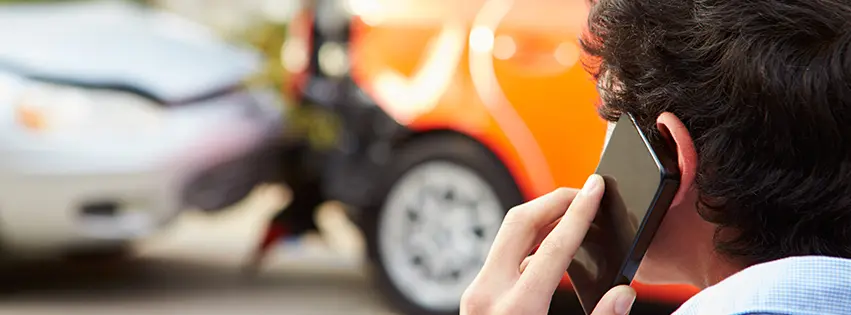
Steps to Take After You’ve Been in a Fender Bender
No matter what time of the year it is, auto accidents are going to happen—whether it's due to rain, ice or distracted driving. The best way to avoid an accident is to slow down and pay close attention when driving.
However, if an auto accident does happen, here are some important steps to take:
What to Do Immediately After the Accident
After completing these steps, you’ll need to standby to be contacted by the insurance claims representative assigned to your case.
If you’re a customer of Farm Bureau Insurance of Tennessee, contact your agent as soon as possible or call our 24/7 claims reporting service at 877-876-2222. You can also report your claim online.
1. Make sure everyone is safe.
After being in an accident, stay calm and check to make sure everyone in your vehicle is okay. If possible, pull your car off to the side of the road so you can evaluate any injuries and the extent of damage to the car without being in the line of oncoming traffic. Don't forget to turn on your hazard lights! Call 911 immediately for true emergencies, such as if anyone is unconscious or injured or if there is a fire.
2. Call local law enforcement.
Once you've assessed the situation and determined there are no injured passengers who need medical help, call local law enforcement and let them know you had an accident. Even if no one is hurt, having an official report helps if the other driver decides to sue for damages or medical injuries or if there is more damage to your car than initially thought.
3. Exchange auto insurance information.
Be sure to collect the names and contact information for everyone involved in the crash, including any witnesses present. Ask the driver(s) for their license, car registration and insurance ID card. You should also take down the make and model of the cars involved and photograph the damages using your smartphone. All of this information will come in very handy down the road. As a general rule of thumb: When talking to others, stick to the facts and don't offer opinions about who was at fault. Also, it's best not to discuss your insurance policies with anyone who does not represent your insurance company.
4. Contact your insurance company to file a claim.
Although going through the claims process may sound quite daunting, it’s fairly simple. Even if the accident is not technically your fault, making your insurance company aware of the accident as soon as possible is always a good rule of thumb. This way, you’ll receive necessary repair funds faster. An insurance claim for an accident should be submitted after a police report has been completed. Most insurance companies will prefer that you file a claim by completing the following steps:
Going Through The Claims Process
Contact your insurance company to report the accident as soon as possible, preferably within a 24-hour period. For a faster process, calling your insurance representative is the most efficient. Some companies, however, may have the option for you to start the claims process through their website.
Be ready to report any or all details from the accident such as all of the names and insurance information of all people involved, any damages to either vehicle, location and time of the accident, and police report number.
What to Do After You File an Insurance Claim
1. Be ready to speak with your insurance claims representative about the accident. They will contact you in order to gather any details or photographs of damages.
2. Expect another call from your claims representative after they’ve determined the cost estimate for the damages. This estimate will typically be determined by your insurance company based on pricing at local repair shops. Your claims representative can offer you a list of direct repair shops if needed.
3. Accept the necessary repair funds provided by your insurance company. Payment will be issued accordingly. Some payments may require you to sign a release prior to accepting the payment.
That’s it! After completing the claims process, you’ll be on your way to having your vehicle looking brand new. Auto accidents are overwhelming and stressful, but following the guidelines above can help to reduce anxiety—allowing you to handle the situation in the best manner possible.
